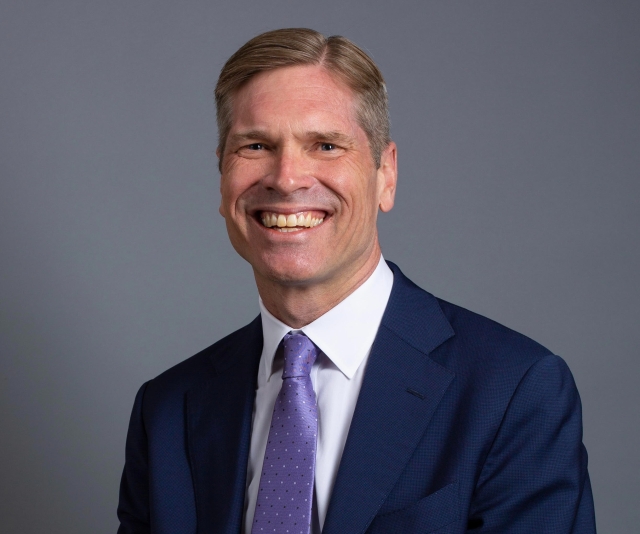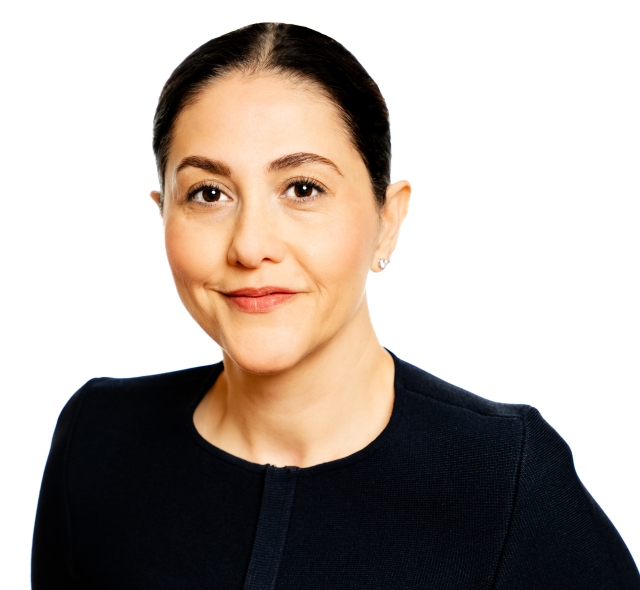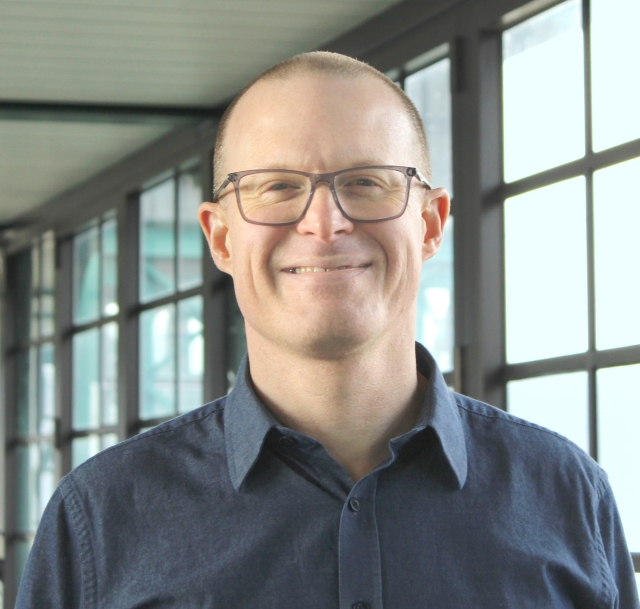
Rob Bernstein, like many in the Amherst College Class of 1994, graduated just as the internet became a consumer-facing proposition. But unlike yours truly, Rob hitched his career to the internet. As a result, over the last 30 years he has managed to stay ahead of the curve, navigating a pivot from print media to digital, and from the WWE to agency work at the highest levels.
As Chief Innovation Officer for Ketchum, a global communications firm, Rob spends his days peering around corners. The top question on his clients’ minds these days: what will be the impact of artificial intelligence on the way we work, live, and create? (Full disclosure: AI helped me write the title of this episode.)
In this episode, you’ll learn:
Why Rob is ambivalent about AI
How we can learn more about AI, and the ways in which it’s already changing the way many of us work
What the WWE was like from the inside, and what it was like to work with the likes of wrestling superstars John Cena and The Rock, as well as WWE founder Vince McMahon
The Amherst College classmates he’d like me to interview next
Here are links to the resources Rob recommends to learn about AI:
Newsletters: Neuron (https://join.theneurondaily.com/), TLDR (https://tldr.tech/)
AI tools: Claude (https://claude.ai), ChatGPT (https://chatgpt.com/), Gemini (https://gemini.google.com/)
To connect with Rob, visit his LinkedIn profile: https://www.linkedin.com/in/robbernstein/

In this episode, I catch up with one of the smartest guys I knew at Amherst College, Professor Allen Hurlbert.
Many of Allen’s college classmates will remember him for his fondness for birds. While that interest has flowered into a successful and prolific teaching career, birds provide just one input into the focal point of his research today: building an understanding of the processes that shape global patterns of biodiversity and how those patterns are being impacted by global change.
For the last several years, he also has spearheaded a citizen science project that invites all of us to track, record, and share information on the insects we find in our own backyards. It works a lot like birdwatching and can be just as fun and important for the advancement of our understanding of biodiversity.
In this episode, you’ll learn:
All about Allen’s citizen science project, Caterpillars Count, and just how easy and fun it can be to participate
The ways in which climate change may produce winners, losers, and species that are likely to adapt
Why overall bird populations have declined over the last several decades
What attracted him to the study of biodiversity in the first place
The Amherst College classmates he’d like me to interview next
To contact Allen, email him at ahhurlbert@gmail.com. You also can learn about Caterpillars Count at https://caterpillarscount.unc.edu/.

When Michael Elliott attended Amherst College, he never imagined he’d one day become its president. But now that he has the job, he brings a perspective that the office hasn’t seen since the last time an Amherst graduate held that office (in 1983). Like animals that can detect light in the infrared spectrum, President Elliott’s student and alumni experience enables him to see things others may miss. As Amherst Reunion 2024 approaches, I thought, who better to talk about coming back to campus and how to make the most out of the brief time we’ll have?
In this interview, which I recorded live with about 25 of my classmates attending virtually, you’ll learn:
What a day-in-the-life as Amherst College president is like
The aspects of Amherst that have changed the most, as well as those that haven’t changed much over the last 30 years
Amherst’s “secret sauce”…
…And how much I miss chicken pucks
Why building a strong community at Amherst is one of President Elliott’s top priorities – and how alumni can help
Recommendations on how to get the most out of coming back to campus, including options for families with children
His answers to alumni attendee questions, including how he thinks about attracting and nurturing diverse talent through Amherst and beyond, and how campus life amid the war in Gaza fares in comparison to colleges and universities that have made headlines
If you’d like to learn more about President Elliott or get in touch, email him at president@amherst.edu, follow him on Instagram (@amherst_president), or watch his interview series, Between 2 Mammoths (https://www.amherst.edu/about/president-college-leadership/president/between2mammoths).

In 2018, Emad Sharghi, an American citizen, was wrongfully detained and given a 10 year prison term by Iran while he was visiting family. His crime? Simply being American. It took more than five hard years to win his release. Neda Sharghi, Emad’s sister and my Amherst College classmate, has advocated tirelessly for Emad and all Americans wrongfully held abroad through high profile media appearances and meetings with US government officials, urging them to have the political courage they need to bring American detainees home alive.
In this episode, she details:
How Emad is doing today
The terrifying moment she learned of his having been taken captive
The stages that families of the wrongfully detained often go through as they come to grips with the unimaginable
The playbook she recommends to help win their release, including governmental and private resources that aid these efforts (see links below)
The Amherst College friends who supported her through this ordeal
How the US government’s policy and resourcing toward hostage negotiation has evolved following the execution of American journalist James Foley by ISIS in 2014
How others can support families trying to win the release of Americans wrongfully held abroad by hostile governments or terrorist organizations
The conversation covers lighter topics, as well, including Neda’s fond memories of Amherst College, her decision to pause her career to be a full-time mom, and the Amherst classmates she’d like me to interview next.
If you, your family, or friends have a loved one who is being wrongfully detained, here are the resources Neda recommends:
The Office of the Special Presidential Envoy for Hostage Affairs (https://www.state.gov/bureaus-offices/secretary-of-state/special-presidential-envoy-for-hostage-affairs/)
Bring Our Families Home (https://www.bringourfamilieshome.org/)
The James W. Foley Legacy Foundation (https://jamesfoleyfoundation.org/)
Post-Isolation Support Activities (operated by the Department of Defense, as described here: https://www.c6f.navy.mil/Press-Room/News/Article/1845496/post-isolation-support-activities/)
The official Hostages and Wrongful Detainees Flag for use in your social media (Hostages and Wrongful Detainees Flag.jpeg)

This episode’s guest has come face to face with some of the darkest parts of the human condition. That’s a result of her social work on behalf of those suffering from mental illness. In addition to providing relief and advocacy to some of the United Kingdom’s most vulnerable, she has captured some of their stories in music that I find moving, lovingly crafted, and soothing.
In this episode, you’ll learn:
About Ming’s music, including three snippets of songs inspired by her social work and featuring a world exclusive from her band’s latest album
Her path to becoming one of the first female Master motorcyclists in the UK
The book and luxury item she’d bring with her to a desert island
Whom in the Amherst College Class of 1994 she’d like me to interview next
Show notes:
Ming’s band website: projectblackbird.band
“If This Is The End” music video: https://www.youtube.com/watch?v=TgBne3iO9p4
The guitar shop she and some friends operate: moonflowerguitars.co.uk
Her internet radio station, which is home to her weekly music show: exilefm.com
Ming’s email: mingyuin13@gmail.com

I interrupt my regularly scheduled programming to fulfill Amrita Sethi’s request that I take a turn in the hot seat and sit for an interview on my own podcast. This episode is all about your humble host.
In describing this episode’s guest, I’m tempted to borrow a version of Mad magazine’s self-effacing claim that it is suitable for wrapping fish. But that would be a disservice to the episode’s guest host, Howard Chung. Thank you, Howard, for stepping in and making it look easy.
In this episode, you’ll learn about:
The origin story of this podcast
My commitment to community institutions, including faith and local government
How I learned a chunk of the Amherst College songbook before I started kindergarden
The portfolio of classic video game brands I once managed
The Amherst classmate I want to hear from next
If you’d like to get in touch with me, you can find me on LinkedIn (https://www.linkedin.com/in/mattcollins1/) or email me at amherstmatt@gmail.com.

Caroline Russell Smith is a sex therapist, and in this episode, she reassuringly shares the things that people can do to have the best sex of their lives. She offers so much more than just paths to a healthier, more fulfilling sex life, though. I see Caroline as a healer and someone who can help especially those in midlife upgrade their lives.
In this conversation (which covers sex and includes some profanity, just in case you listen in the car with kids or at work), you’ll learn about:
The importance of learning new things in middle age – and the new sport Caroline has fallen in love with
Her journey through high school sex education and working with both sex offenders and survivors of sexual violence
Advice on how people in their 50s can tackle three problems common to this cohort: searching for meaning, facing malaise, and evolving our sex lives as our bodies age
The Amherst classmate she wants me to talk to next
Want to get in touch with Caroline? Visit her website (https://caroline-russell-smith.squarespace.com/) or send her an email at carolinerrsmith@gmail.com.

“No man is a failure who has friends.”
These are the memorable last words the angel Clarence has for George Bailey in It’s A Wonderful Life. Frank Capra’s movie classic comes to my mind this time of year, but I also thought about the line during my conversation with Dr. Amrita Sethi, an award-winning and pioneering endoscopist, as well as an Amherst College classmate. Not only has she figured how absolutely essential it is to have close friends and allies. She has built support systems that extend these benefits to aspiring doctors, helping them increase access to the profession, as well as learn and bounce back following a mistake.
In this episode, you’ll learn about:
Amrita’s embrace of breadth and focused depth, and how that has fueled her creativity and ability to innovate
The critical importance of deep friendships and professional allyship, including people who will help you overcome self doubt
The value of The Empathy Project (empathyproject.com) and other initiatives that help patients and doctors develop the trust and openness they need to achieve better outcomes
Her theory behind why so many members of the Amherst Class of 1994 share common traits and worldviews
Why we think James Cameron exemplifies the benefits of a liberal arts education
The members of the Amherst Class of 1994 she wants me to talk to next

Dr. Will Turner is an accomplished physician and leader at Columbia University’s Vagelos School of Physicians and Surgeons, serving as an Advisory Dean. He’s also Vice Chief, Diversity, Equity, Inclusion, Division of General Medicine. He’s a team internist for the New York Yankees (and thankfully didn’t end this interview prematurely knowing I’m a Boston Red Sox fan). Amherst College, his alma mater, honored him as the 2023 recipient of the prestigious Wade Fellowship.
But it would be a mistake to assume that he was able to achieve all this purely because of his innate talent. In fact, Will is well practiced in overcoming setbacks and disappointments, and he believes that the qualities of resilience and perseverance are as important an indication of potential as grades are.
In the wake of the Supreme Court decision striking down affirmative action practices at Harvard and the University of North Carolina, he is passionate about exploring more ways in which medical schools can attract and retain candidates from diverse backgrounds. That includes recruiting students who can demonstrate their grit.
In this episode, you’ll learn all about:
* Will’s belief that students are way more than their GPA.
* How overcoming academic challenges at Amherst helped him avoid a collapse of confidence in medical school that afflicted some of his classmates.
* Why math and science students should not despair if they’re not getting the grades they want.
His approach to overcoming imposter syndrome.
* The Amherst classmate he wants me to talk to next.
If you’d like to get in touch with Will, you can email him at wt62@columbia.edu.

What is it about Jean-Luc Charles that keeps him looking so young, like he could hit the track and give the 21-year-old version of himself a decent race? I’m sure diet and exercise play a role, but he’s also figured out what makes him happy.
Jean-Luc is the Vice President of Human Resources, People and Culture, and Diversity, Equity, and Inclusion at fashion brand Eileen Fisher. He’s also the pastor of the First Haitian Free Methodist Church in Stamford, CT. On the surface, one might assume that moving between these two jobs would require considerable context switching, but having learned how Jean-Luc operates, I don’t think they’re as different as they might appear. In both roles, Jean-Luc helps others overcome challenges and become better versions of themselves. Turns out, doing that work fills his tank, fulfilling him in ways most would love to have in only of their jobs, much less two and at the same time.
In this episode, you’ll learn about:
How Jean-Luc’s Christian faith informs his work.
His adaptive strategy for helping Eileen Fisher become a more diverse workforce and making all its employees feel like they belong.
The tools and resources he recommends to anyone who wants to learn about and implement anti-racism in their places of employment.
His journey to Amherst College.
The member of the Amherst Class of 1994 that he wants me to interview next. Hector Caraballo wanted to hear from Andy Liu, and Andy wanted to hear from Jean-Luc. I can’t wait to interview the person Jean-Luc tags in this episode.
